#a lot of published books came from this fandom
Explore tagged Tumblr posts
Text
It always baffles me how Tamsyn Muir writes the locked tomb series as if it's a fanfic. It's such a weird feeling, but I don't in any way mean it as an insult.
When you're reading tlt series there's always this presence of the author that you don't often get on other published books. Like, she'll make in jokes and references as if she's part of the fandom. Right when you're getting immersed in the world she'll pull out a "That's what she said" or "Jail for mother!" and suddenly you remmember that this is a book, with an author, an author really fond of puns and internet memes.
Tamsyn Muir writes like she's writting fanfiction to a small, nieche fandom where all the authors all kinda know eachother, and they've already deviated from canon so much that the stories are their own thing now.
It used to bother me a lot on my first read but now I'm just fascinated by it. It feels like you're reading a work made by a peer. A peer who is really good at writting, but a peer no less.
Maybe it's just that I grew up and have written some stuff myself, and now I can see things I couldn't before. But idk, it just really interests me the way Tamsyn just fucking writes shit like she's just trying to amuse herself or her friends. I came to respect it a lot.
I'm not as good of a writter so there's no conclusion to this really. Just postulating to the void like I'm Palamedes Sextus.
733 notes
·
View notes
Text
"Appropriate" responses to the Gaiman issue
TLDR: This isn't a Rowling situation, be wary of internalized purity culture.
He's a predator. I'm glad a proper journalist followed up where police have failed (and possibly given victims a better footing for future charges).
But I have a problem with the knee-jerk responses targeting the fandom.
Just to clarify, I'm not talking about insulting The Predator. This is about how you treat people who have/do/will enjoy the stories that unfortunately came into the world through his keyboard.
Fans aren't intrinsically evil/uncaring for continuing to participate in associated fandoms.
This is not another Rowling situation. Why? Let me clarify. The consequences of consumption are very different. Rowling is ACTIVELY using her popularity and income as a creative to target one of the most vulnerable minorities in the world. Buying official merch/books/movie tickets prove to the powers that be that she remains a good investment, so they'll give her even more money. This perpetuates the cycle - new movie/book deals, more income, more hate, rinse and repeat.
The push to avoid Rowling's work in full is driven by the fact that she has FACED NO CONSEQUENCES and is still powered by her creative properties. It's fandom/consumers trying to bring justice.
Gaiman, on the other hand, knew he was doing bad shit on some level because he kept his abuse hidden. His status and reputation let him get close to vulnerable fans and essentially intimidate authorities from going after a celebrity. He is FACING CONSEQUENCES. I would personally like to see criminal charges brought against him, but that's out of the fandom's hands. Things we could've influenced (his Disney deal appears to have gone to shit, he's been booted from the truncated final season of GO, and there's no news on Sandman 3) are already in motion. If his publisher doesn't drop him, I'd say avoiding his future works is beyond valid (I certainly wouldn't buy them). But I'm going to watch the new season of Sandman. And once I've taken time away, I'll probably finish my active fics.
"Judging" people who still enjoy his work stems from good intentions that grew out of the fetid ground of purity culture rhetoric.
Writing fanfic and enjoying shows that are already made do not make people soulless accomplices. The idea that unproblematic stories by saintly creators are the only things you're allowed to enjoy is not only flirting with censorship, but it's also impossible.
If you think people should have nothing to do with Gaiman's works, you better throw out anything Weinstein touched. That includes Jackson's LOTR trilogy, FYI. Also, anything his company officially produced (which still gives him money in some cases) should never, ever grace your screen. That includes some of the better Stephen King adaptations, The Orphanage (which was a breakthrough Spanish-language film in Western markets), The King's Speech, The Imitation Game, Woman in Gold, Paddington, and It Follows.
If you aren't willing to publicly announce your "disappointment" in anyone who continues to enjoy any of those films, then kicking up a fuss over how other people process and interact with problematic content from a fallen celebrity who is in the process of getting his dues is pure hypocrisy.
Personally, I'm maliciously complying with Gaiman's famous quote about how once a story is out there, it doesn't belong to the author anymore. Well said, Predator, these are mine now, and I shall fuck about with them as I see fit.
Attacking or snobbishly looking down your nose at the fandom also erases YEARS of beautiful critique and thoughtful exploration of existing, acknowledged problems in works like The Sandman.
People in these parts already know how to handle complex issues in complex pieces of media. Gaiman isn't our god. His canon is not our bible. He didn't teach us morality, as is apparently the case for a lot of people who grew up reading Rowling's works as a child.
If you have a problem with the censorship comment I made, I'd like to point out at least one writer friend is LEANING INTO the fandom as a way to process their own trauma. Suffice it to say they survived a very similar situation. They see it as empowering to take the stories away from the abuser and use the characters/settings to make something new.
I get the ick. I have it right now. But I'm not burning every copy of his work I own (full disclosure I have... *checks shelves* a copy of Neverwhere and The Sandman series). Doing so is totally valid, and if that helps you process and feel better - go for it!
But this is not the same as Rowling and the only ones you hurt by declaring your "judgement" is a complex group of individuals who are able to enjoy fiction, remain aware of potential social consequences, and found a place that doesn't align with your black/white morality.
With that said, judge away! I better not see any stories from Charles Dickens, anything in anyway associated with the Weinsteins, Nickelodeon shows, Charlie Chaplin references, or Francis Ford Coppola films touch your feed. If you scratch the surface, you'll find more things to judge others for enjoying, and they will inevitably find something to judge you for, too.
374 notes
·
View notes
Note
Aaaaa Yuuna is so cuuutee 💗😆 Her hair is so prettyyy. But with the addition of the new Yuu I’ve come up with a theory that with the pattern the mangas have taken so far, they’ll start switching back and fourth between male and female yuus for the rest of the dorms:
Heartslabyul - Yuuken (Male)
Savanaclaw - Yuuka (Female)
Octavinelle - Yuuta (Male)
Scarabia - Yuuna (Female)
Pomefiore - Male
Ignihyde - Female
Diasomnia - Male
Just something I came up with that i wanted to share with you ^^ Also who is the manga artist for Scarabia 🤔
[Referencing the Episode of Scarabia!]
Lots of Yuuna-related asks recently (and for good reason!) so I decided to lump them all into one post :DD
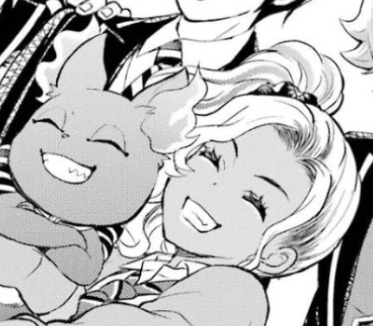
Yes, Yuuna is very cute~ The alternating genders of the manga!Yuus has actually been a pretty popular theory for a while now, actually! Some believe this is meant to be the Yuus having the opposite genders as the Great Seven member of their respective books/dorms. But yeah, the pattern seems likely at this point.
The mangaka for the Episode of Scarabia is Majiko-sensei! They have previously contributed a chapter to the manga anthology. You can read more about their past works here.




I'm not sure if "[taking] care of [one's] appearance" is the right phrase to use (as it unintentionally implies other Yuus are slobs/don't care about how they present themselves, when that's definitely not the case)? Maybe it would be more accurate to say, "Yuuna has stereotypically feminine aesthetic tastes", though it's more immature and preppy than Vil's is. I think Yuuna has a cuteness that's more characteristic of Cater than Vil--but all three of them definitely have overlap in their interests in makeup, fashion, social media, etc. I feel like Yuuna would get along with them both!! We do technically see her interacting with Cater (they take a selfie before he departs for winter break) and are assumed to have already known each other due to the events of books 1 and 2. Too bad we don't really get to see them interact in those books... and that we won't see Yuuna interact with Vil for the Episode of Pomefiore. We'll have a new Yuu by then (which gets into my disappointment with never being able to fully follow a single manga!Yuu and their character arc through to the end of the main story...)💦

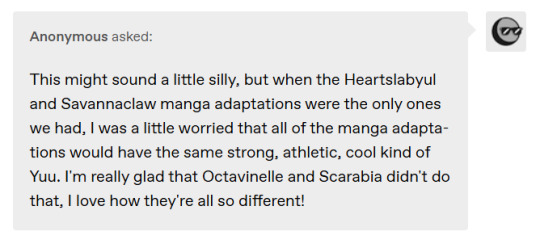
Yeah, it's nice to have variety in the manga!Yuus' personalities, skillsets, and interests! ^^ It makes them a lot of fun to follow, even if we know they'll only be with us for the length of one book/dorm.
I've personally really been loving Yuuta and Yuuna a lot. Yuuken and Yuuka are also nice, but I find that their general characters are kind of similar (athletic and level-headed) and don't differ enough to result in interactions unique from game!Yuu (with perhaps the exception of them being able to physically contribute to battles). This is not true of Yuuta and Yuuna, whose abilities extend to other areas and therefore have a larger impact on the world and its characters. For example, Yuuta's love of food + cooking skill has him shouting at Grim sometimes for not appreciating food, but it also becomes excellent leverage for sleeping over at Savanaclaw later in book 3. You can also see how Yuuna's outgoing personality would draw people to her and allow her to make connections.
The manga!Yuus also speak to the diversity of Yuus we see in the fandom. I know a lot of us were waiting for a girl Yuu (which we got with Yuuka), a Yuu of different body type (which we got with Yuuta), and a very femme presenting Yuu (which we got with Yuuna). Yuuken is also great because he was the first Yuu we got that actually had the ability and the confidence in his fighting capabilities to charge head-on into an OB fight.


As I state in my pinned post, manga raws generally come from Monthy GFantasy, which publishes new chapters of the Twst manga online each month. You must PAY to access those raws.
In the case of the Episode of Scarabia, the full first volume was released in today. It is avaliable on Kindle through the Amazon JP store. This is still something you would need to PAY for if you're interested in seeing the full thing right away.
I cannot provide full chapters to the public, as this is paid content that I receive from my own friends who subscribe to GFantasy and/or who bought the first volume of Scarabia on Kindle. You can make your own decision whether or not you wish to purchase for yourself; however, there is most likely a scanlation team that will put out an English version sooner or later. Again though, this would surely take some time to get done, especially when there's 4 chapters of Scarabia to translate.
#disney twisted wonderland#twst#twisted wonderland#disney twst#twst manga#twisted wonderland manga#notes from the writing raven#question#episode of scarabia#episode of scarabia manga#Yuuna Oujou#Oujou Yuuna#Vil Schoenheit#Cater Diamond#advice#Yuuta Mito#Mito Yuuta#Yuuken Enma#Enma Yuuken#Yuuka Hirasaka#Hirasaka Yuuka#Yuu#Grim
157 notes
·
View notes
Text
there's something i find particularly annoying in this fandom and it's the way purebloods are written as highly sophisticated extremely rich and straight up a rip off of regency period novels
i understand the choice of this specific portrayal, i can see it as an approximation to historical drama, where the social restrictions are compelling and are relevant to the story, and a good writer can make any concept believable and good
HOWEVER as much as the worldbuilding on wizarding costumes (and a lot of other things) is extremely inconsistent and gets progressively worse towards the later three books, the implications that i see don't point towards this version of a sophisticated performatic elite who interacts only with itself
while i tend to see the blood status in the harry potter universe as a distinction of class and not at all a distinction of race, i don't think the difference is, in practice, as marked as it is in real world contexts, mostly because of how numerically small and insulated the wizarding community is
this post is part of my personal vendetta against purebloods as charming aristocrats & what appears to be the necessity of writing each and all of them as so very well spoken and politically savvy and never-caught-dead-speaking-to-a-half-blood
for once, the sacred twenty-eight is extra canon information and is disputed IN UNIVERSE, because it was anonymously published and received backlash for the inclusion (weasley, ollivander) and exclusion (crabbe, goyle, potter) of certain names
the malfoys are the only extremely rich family we see in canon. extra canon information tells us they made money before the statute of secrecy by trading with muggles
compare that to the potters who are also very rich (there's no scale to tell us who is the richer family), but made most of their money from the invention of sleakezy in the 20th century
the blacks are also implied to be wealthy: sirius manages to live off his inheritance after buying harry an expensive broom, and he says his grandfather likely paid for an order of merlin
there's a lot to be said about the blacks (e.g. they should have at least a couple more properties other than grimmauld place), but the big picture and the similarity with the gaunts (not about the incest, stop fixating on that) suggest they were a family in decadence by the time sirius was growing up
i believe that the implication is that neither of them had a proper job, which creates a similarity with gentry, but gentry lived off rentals and while it is possible they had a country state i don't think grimmauld place was making a lot of money
lucius malfoy also didn't work and spent a portion of his time being a school counselor (and obviously not being paid for it, as it was a way to exercise his political power over the main learning institution in his community)
it's also extra canon that the nott family had equal footing with the malfoys, so we can assume that crabbe, goyle, parkinson and bulstrode were slightly beneath them, either in social standing or money, despite the later two being part of the sacred twenty-eight (or it could appear to be so because pansy and milicent are girls)
the weasleys are obviously the main example of a poor sacred twenty-eight family, as were the gaunts
the crouch family was most like rich (they could afford a house elf), but it's likely that most of that money came from mr. crouch having a high level ministry job. his family and connections were probably an advantage to getting the job, but it's possible he wouldn't be able to maintain the lifestyle without work
longbottom, prewett and macmillan are families that appear to be very traditional, but not remarkably wealthy
other working members of the sacred twenty-eight are: horace slughorn (school teacher, but it can be argued that teaching hogwarts is a prestigious position), garrick ollivander (wand maker and shop owner, but, again, the only wand maker, which holds a certain prestige in itself), mr. burke (shop owner), arthur weasley (ministry employee), frank longbottom and kingsley shacklebolt (both aurors). amycus and alecto carrow are also temporary hogwarts teachers
the blacks married out of the sacred twenty-eight many times (max, gamp, crabbe, potter)
all of these people and every single muggleborn goes to the same school, buys magical supplies at the same place, drinks from the same pubs, etc. that alone should serve as evidence that there aren't many exclusive pureblood hangouts around
the only place that seems to attract the malfoys (arguably the richest and most important pureblood family in the 90s) and not most other people, is the knockturn alley, which is hardly a high brow sophisticated spot
except for malfoy and flint, no slytherin quidditch player during the 90s is in the sacred twenty-eight, so that's hardly a criterion for making it into the team
mulciber is not a sacred twenty-eight name, they could very well be half-bloods
tom riddle and severus snape were half-blood students who formed ties with purebloods while in school and held blood supremacist views, assimilation to a certain level was possible
#my other personal vendetta is that it all comes down to demographics but no one wants to hear me talking about that#trying to come up eith background slytherin characters from the 70s took me places i wouldn't go with a gun#and my very petty complain is can we please stop with the galas? when can we stop with the galas?#and assuming they care about culture like at all my rant on wizards and art is probably bigger than this one#hp meta#pureblood society#pureblood culture#the noble and most ancient house of black#the sacred twenty-eight#sacred 28#a worldbuilding nightmare#this is my most annoying post up to date and its a Hard contest#also just find reading about this stuff soooo boring but i find myself trying to justify not wanting to write like this
185 notes
·
View notes
Note
I just seen your post on JKR and then Rick Riordan, oh my gosh, where do I even start?
Sit down, I've brought the tea.
So I'm in my 30s, and as you may guess, I was reading Percy Jackson as the books were being published. I joined, I think, just as The Last Olympian came out. I was definitely here for The Lost Hero, and considered myself a longtime fan by then, so, as you may guess, I was in the fandom for quite some time.
I bore witness to everything Rick Riordan did, from fan harassment and bullying to racist remarks he made about his characters. I watched firsthand as he posted how happy he was with the movie casting choices as they slowly came out.
I was watching Supernatural at the time; it was the season where Michael and Lucifer were squaring off, Jake Abel was there, so Season 5 (it ended at Season 15), and I was happy that someone I knew was playing Luke.
Anyway, he was very happy; he would make posts about shooting, being on set. He only started openly hating the movie AFTER it flopped at the box office... I guess it didn't give him the fame and fortune he had expected? Shines a new light on that hate, doesn't it?
I haven't checked in a very long time, but I believe he has deleted those early blog posts where he praised the movie and the sets, taking pictures with the cast and saying they were all perfect. He even said Jake was exactly how he had pictured Luke. Come to think of it, he has buried his blog, as it is not at all easy to find anymore after the whole incident with that blog post on Gaza/Israel.
When I heard he was now making a TV show, I watched him and the cast carefully. The TV show seems to be a slight success, so he's very happy to praise and support it. But what if it flopped?
He would be slagging them all off. I think a lot of actors were put off Percy Jackson on disney as his reaction to the first movie was so unprofessional and he enjoyed letting everybody know how much he hated it.
Back to the fans now, I saw Rick Riordan every week blocking fans, then posting their usernames and pictures/screenshots of what they had said to be blocked by him. The majority of them were young fans telling him they had watched the movie and liked it. He was posting pictures of little kids' profiles and sending his fans out to hunt them down online and harass them. It happened all the time and he enjoyed it so much he even made a Q&A about it on his website (since took down) he knew about the fans bullying other fans too, he openly encouraged it.
I was actually one of the first people to start a Rick Riordan call-out group; this was when I was about 19 or 20. I was documenting his toxic behaviour back then, that was before the problematic aspects of his books came to light. The man has been vile for a very long time.
I am quite happy running a tutorial blog for gifs right now, but if I had the time, I would start a blog with all of my old content back. Sadly the older stuff is lost as it was on my original blog which has been dead for years, but anybody else around 30 who was online during the fandom's original run can tell you how much of a jerk he is. We used to call him Uncle D*ck and a friend of mine actually messaged him with a list of everything problematic he was doing.
He turned very nasty.
The nice guy act is just that, an act. His new Rick Riordan persona came out maybe four years ago now?
There's a reason he posted a lame ass post about harassment in book publishing and how he's going to self reflect upon his own actions when his buddy James Dashner was exposed a couple of years ago. There's a reason he ran from Twitter and there's a reason now why the official Percy Jackson book twitter is often set to private/public without replies... he can't hide his true nature much longer and people are once again waking up to him.
I would not allow my kids within feet of Percy Jackson, that's toxic shit right there.
Oh my goodness. That's some toxic shit right there.
I'm became a PJO fan in early 2023, for context (literally by reading Solangelo fanfiction) and I am beyond disappointed in other PJO fans for ignoring this and myself for not doing adequate research.
The whole movie/show drama is very interesting, definitely did not know about how he began hating it AFTER it flopped. Like, I've always seen it played as him hating it because its book accurate.
But it makes more sense this way. Honestly, I watched the show when it came out and it's not very book accurate at all. I've been scratching my head wondering why he was so kind to it when it was not even that good. But now it makes sense.
Thanks for telling me, anon. Good to know about this, sad it had to be this way.
106 notes
·
View notes
Text

2024: A Re-Entry to Fandom
I guess this is a thing? (Oh shit this brackets bit was written at the end and I appear to have emotionally vomited an essay. Sorry ‘bout that.)
In late 2023 I experienced a personal tragedy and retreated to where I had always found comfort: books.
I read a series that had been recommended to me before, but I hadn’t had time to read it - The Simon Snow Trilogy by @rainbowrowell and it awoke a dormant-but-never-forgotten love of fanfiction in me.
In my teens and early 20s I wrote a lot of fan fiction on the ol’ FF net, all of it of atrocious quality I’m certain, which is why I haven’t tried to rediscover that account.
Instead I found AO3, and restarted regularly writing for fun instead of for work or study/research.
I didn’t do any summation for 2023 because I think my first fic was posted on like 10 December 2023, but AO3 tells me I wrote 4 works, all SnowBaz, at a total of 55,154 words.
In 2024, I’ve published 5 works, at a total of 94,323 words.
What truly blows me away (and honestly makes me a bit teary) is the 1013 kudos, 100 subscribers (inc 15 subscribers to just me rather than a fic!), and 222 comment threads on my works. 🥹
So: my 2024 works.
Use your words, SnowBaz, Rated: E, 3,930 words
A smutty lil gift fic wherein Baz teaches Simon how to sext.
Splendid Morons, SnowBaz, Rated: E, 12,886 words
Published for Erotic Grope Fest, aka Baz’s birthday. A collaboration with @alexalexinii and a story written to enable their amazing art of Baz in lingerie.
Precious to me for not only getting to work with Alex, but also for being the beginning of my relationship with Becky @rbkzz, my incomparable beta who has become one of the dearest people in my life.
On The Rocks, SnowBaz, Rated: E, 74,592 words (WIP)
My opus, as it were. It originated from a fluffy cute prompt of “what if Baz and Lady Ruth were work besties?!” And I came along like “YEAH! But with trauma, exploration of love in mental illness, and alcoholism!”
I began posting it in March and it’s about 2/3 done now. But for Becky it would be both an absolute pile of horse poop, and an abandoned WIP. Instead it has a clear direction and she found motifs that I’d repeatedly used by accident in my drafts and built imagery, greater meaning, and also debated me ad nauseam on my preference for spelt over spelled.
Immune Response, @lumosinlove’s Cubs, Rated: G, 1,421 words
I was a big consumer of WolfStar in my teens and was recommended Lumosinlove’s Sweater Weather and, like many before me, fell in love with the story, the original characters, and ice hockey itself (much to the surprised glee of my Canadian spouse, who for a decade has tried in vain to get me on board. Little did he know the key was obviously gays.)
This is a lil’ slice of life sick fic examining how each of the Cubs responds to getting sick.
I have a lot more unpublished drabbles about these characters and some fics that are being cocreated so stay tuned for 2025?
Preliminary, my dear Basil, SnowBaz, Rated: T, 1,494 words
A gift fic for @martsonmars as part of the Carry On Discord’s Secret Snowflake Exchange.
Among their suggestions was “Sherlock AU, but not BBC Sherlock, 19th century Sherlock” and it hooked me with the idea that Baz would absolutely fancy himself as Sherlock. I actually sketched out a plot to SnowBazify 4 of the Holmes stories, so maybe 2025 will see them unearthed.
There is one other published fic I worked on this year, but as a beta rather than a writer for @swoopswrites @rsbigbang piece Class A which was super fun to do (and got me to watch a great series - The Gentlemen on Netflix) and Swoops has a fantastic mind so I’d encourage you to to check it out.
Finally, I have always been a writer rather than an artist, but I do enjoy drawing, and the need to upgrade my iPad for work arose and so I also tried my hand at drawing again for the first time since I was 17 or so.
In order from the first one to the most recent one, the lil scribbles I did this year:
Penelope Bunce, Wolfstar on a train, Baz with coffee, cuddly Cubs, FinnLo being adorable, iconic Moony with a cane, emo Sirius Black.
And THAT was 2024 (and 2023).
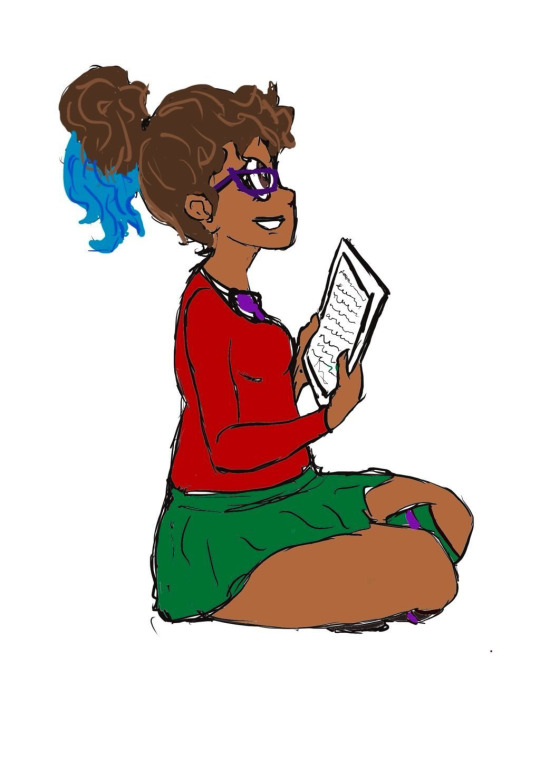
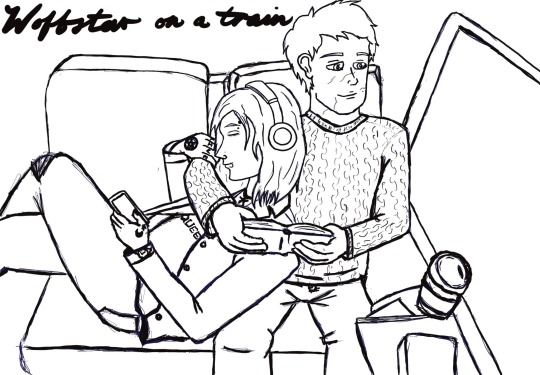
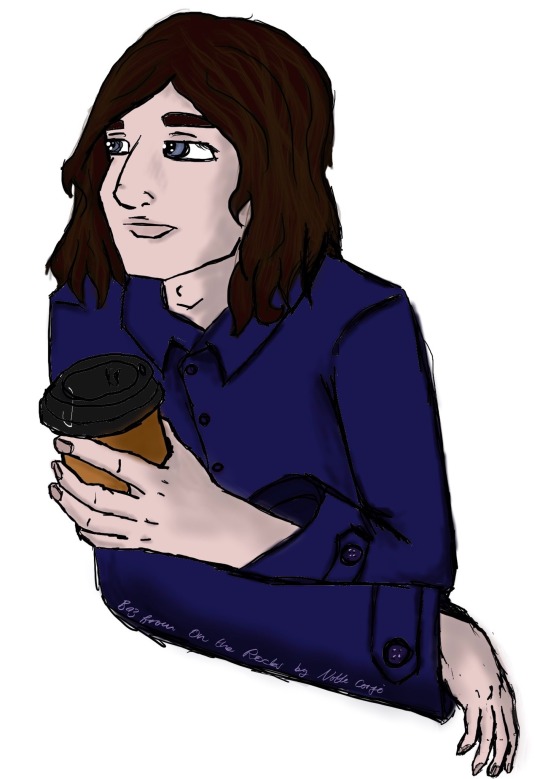
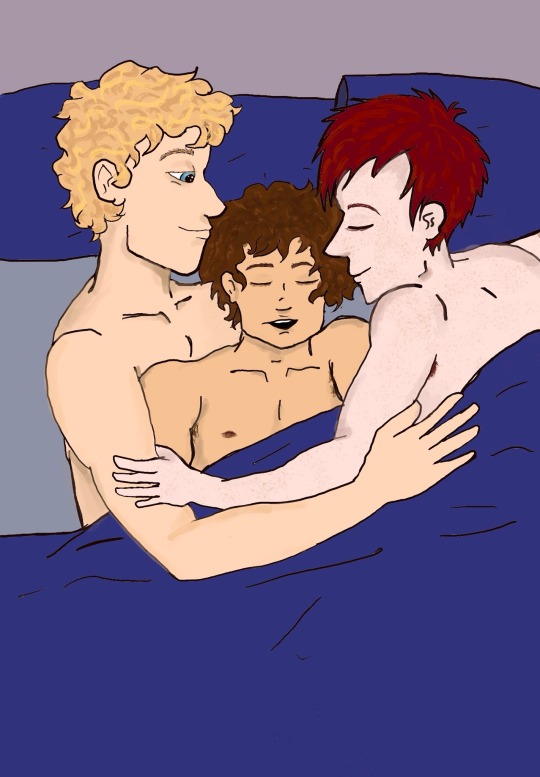
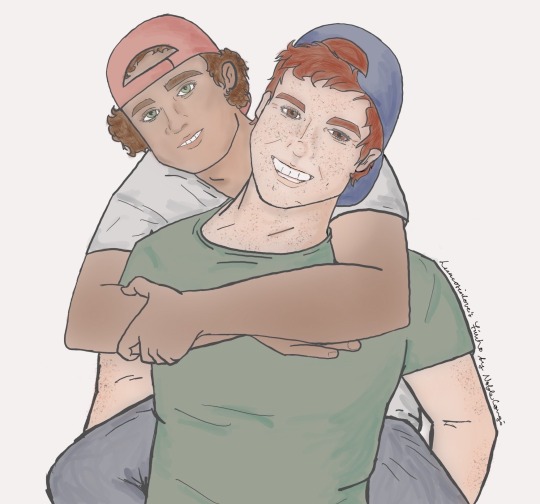

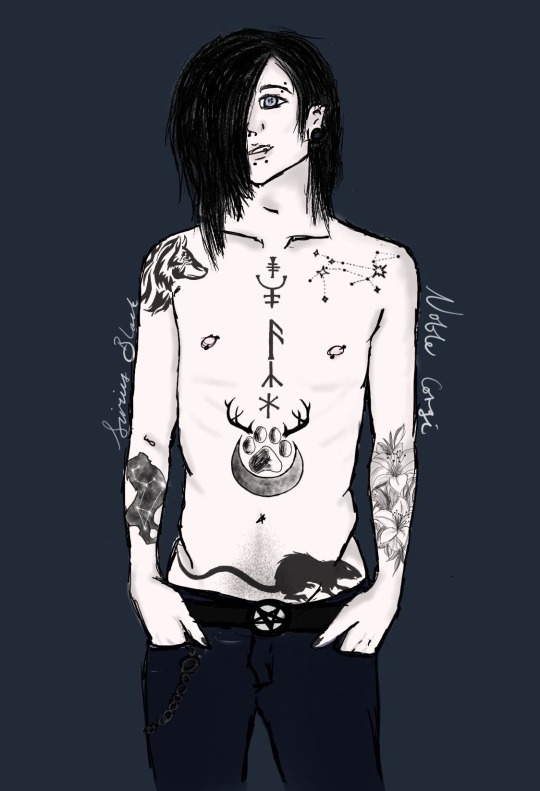
@artsyunderstudy @asocialpessimist @angelsfalling16 @whatevertheweather @edenalix @emjaydellyone @erzbethluna @emeryhall @run-for-chamo-miles @raenestee @rimeswithpurple @roomwithanopenfire @thehoneyedhufflepuff @theearlgreymage @thewholelemon @lonleyhumanbeing @letraspal @you-remind-me-of-the-babe @youarenevertooold @iamamythologicalcreature @ichooseyousnowbaz @ic3-que3n @ileadacharmedlife @onepintobean @palimpsessed @prettygoododds @philaet0s @pacey-bunce-loves-joey @sorenphelps @skee3000 @stitchy-queerista @fiend-for-culture @facewithoutheart @fruitcoops @girlwithcurls96 @hushed-chorus @hihimissamericanbi @cutestkilla @cosmicalart @confused-bi-queer @noopienoopiernoopiest @messofthejess @monbons
#2024 round up#writing roundup#art roundup#simon snow#baz pitch#snowbaz#fanfic#the simon snow trilogy#writing#ao3 fanfic#sweater weather lumosinlove#coast to coast lumosinlove#lumosinlove#logan tremblay#finn o'hara#leo knut#FinnLo#o’knutzy#wolfstar#wolfstar fanart#snowbaz fanart#remus and sirius#remus lupin#moony#padfoot#sirius black#marauders
79 notes
·
View notes
Text

Day 1 of @hprecfest - First fic you read/first fic you remember reading
I started reading in the early 2000s, before HBP was published, so this is a tricky one to start off with! I vividly remember reading along to Cassandra Clare's Draco Trilogy and Maya's Underwater Light - both WIPs at the time, and neither freely available now 💀 if anyone else was around then, though, I have compiled a reclist of Vintage Drarry Fics (2001-2006, including such classics as Irresistible Poison, Beautiful World, Seamus is Seamus, and Love Under Will).
The fic I've chosen to rec today is the one that brought me back into fandom after a decade out; indirectly I suppose it's the reason I'm here at all, and so perhaps the lesson for any creators reading this is that you'll truly never know the impact your works have, even decades down the line!
Transfigurations, by Resonant : E, 71k, 2003 (MCD warning, but not for Drarry)
Summary: Five years after Voldemort's defeat, Harry returns to England to help re-open Hogwarts.
Excerpt:
"You're going to have to talk about it sooner or later, Harry," she said. "I know it's hard for you, but --"
"Hermione --" He looked over her shoulder, searching for something that would distract her.
He succeeded a little better than he would have liked. First he caught a flash of pale hair in the shadows behind the top table. Then the shape came clear. An expensively tailored robe, an expensively bejewelled hand, an expensively barbered head, an expensively curled lip --
Was he never going to be free of Draco Malfoy?
Hermione followed Harry's eyes, and then she straightened up suddenly, crying, "Draco!" and ran to clasp Malfoy. Harry stared dumbly after her. "Mother sent a book for you, and some biscuits, they're in here somewhere --"
"Never mind that," Malfoy said, hugging her roughly. Harry felt a pang of fury. Since when was Hermione so cozy with Malfoy? "What I want to know is, did Mrs. Spenser ever find Bratleigh's tooth?"
"Oh, yes, it turned out to be in his little brother's forearm -- but how are you getting on without mechanical pencils?"
"Musgrove's Magic Pencils are nearly as good, though not quite so satisfying to click ..." Harry watched their two heads bent together, the dark and the fair. They were exactly the same height, like a matched set of figurines. Something extremely strange must have happened while he was in Florida.
Malfoy was still affecting the look of a wizard-bard from a storybook, Harry thought scornfully: pale hair falling to his shoulders, deep-plum robe heavily embroidered in the same color around the collar, narrow hands heavy with silver rings. Harry hadn't remembered his mouth being quite so red.
He looked up and caught Harry looking, and something crossed his face that wasn't quite the expected sneer. Hermione was tugging him over by the arm. "Harry just got in today from America, Draco, he didn't tell anybody he was coming, I think he forgot how to write a letter --"
"He's forgotten a lot of things, I imagine," Malfoy drawled, but he offered a hand. "Potter. Welcome back."
Damn it, even his languid, lingering handshake felt as though there was an insult behind it.
Where to start with this fic? The premise is that following the war, Harry left for Florida, settling down with a group of Indigenous wixen as they worked to set up a new school of wizardry. He returns, five years later, to a Hogwarts in trouble, rife with traps and curses laid by Death Eaters long gone, and to his old friends, whose letters he'd mostly ignored during his time abroad. Many of the old faces are familiar, but the addition of Malfoy, now, inexplicably, best friends with Hermione and Professor of Muggle Studies, irritates Harry beyond belief. Worst of all, when it comes to Cursebreaking, Harry and Malfoy's magic works best in sync, so to their horror they find themselves paired together as they work to make the school safe on its reopening.
There are so very many things to love about this fic. The narrative tone feels very true to canon, as does Harry's voice; possibly a result of its being published while the books were still coming out, but unlike many of the other fics written back then, it has a very adult feel. It's set entirely in Hogwarts, and with a huge cast of supporting characters, including a sneering, dramatic statue of the deceased Professor Snape, sexy handyman Ron, COMC Professor Charlie Weasley, and some wonderfully endearing OCs. The writing's lovely and clean, sparing, but still very visual, and full of worldbuilding details so unique and rich you'll be thinking about them years later (trust me). And the relationship development is truly second to none; we come to love this Malfoy reluctantly, but so so deeply, along with Harry. Also, this fic has, to me, the original rushed sex in a bathroom stall scene, and one of the sexiest undressing scenes you'll ever read. I absolutely adore it, can quote huge chunks, and every single time I read it it brings back everything I love about the world of Harry Potter. Go and add it to your MFL, and you can thank me later <3
If you read it, and if especially you love it, please do let me know! And as always, please do take the time to leave the author a kudos/comment <3
95 notes
·
View notes
Text
You’re not a real Tolkien fan if you—
Ok, I’m gonna stop you right there (theoretical person I’m talking to). Because that is just a ridiculous take. I’ve seen a lot of posts in the past several months and especially lately about published and unpublished lore that are all about tearing each other down for supposedly not understanding Tolkien or TROP or just not doing fandom correctly because you don’t “know” enough, and that’s really just…sad.

Recognizing LOTR canon and Legendarium stuff makes for a rich (not a richer, necessarily) experience when watching Rings of Power since it informs what choices were made to be seen and heard onscreen. I know I had only read the trilogy and the Silmarillion way back in high school and a bit in undergrad and loved a lot of what ended up in the Peter Jackson movies before sighing, giving in, and watching TROP.
And yeah, I shrieked in delight when Halbrand said “call it…a gift” and when Isildur and Elendil showed up onscreen in season 1 to the point that my partner probably thought I was having some kind of attack, but that was it for me when it came to recognizing a lot of things. And I still managed to enjoy the show on its own terms and have things to contribute in fandom here and elsewhere if I wanted to.
I relied on people who became my friends here and on twitter who posted explanatory things of “see this detail from the various books? Cool, right?” and getting to say, “That is cool!” in return only made me enjoy the show even more in rewatches like they were easter egg offerings to the fandom.

The concept of you’re “only” a fan of the show or not a “real” Tolkien fan framed in such a negative way over the past several months creates a real barrier for participation and enjoyment of community from people either new to the fandom or those who don’t have the sheer time or the inclination to read 20 books and memorize every detail or even use the search function on ebooks they might or might not have to weigh in on things they like or dislike or get excited about or hope to see.
Instead we get debates that are less “Cool, right?” anymore and more “I’m right and you are lesser”. If I wanted that, I would go hang out on Reddit where that is what conversations revolve around and people shit on each other over the texts.

This is getting long (sorry) but where I do live for scholarship on Tolkien, it is not the be all end all. It does allow for a deeper understanding of content and the context of the content depending on the specialty of a given scholar, but you don’t have to read it to prove to some faceless person on the internet that you’re a Tolkien fan. I also love JRR and Christopher Tolkien and the trop showrunners and Peter Jackson as primary sources, but they are also not the be all end all of what constitutes a correct way to experience these works. That way lies stagnation and more of an idea that there is somehow only one true way to interpret texts and films and our beloved television adaptation through the lens of only what the creator possibly intended.
This is certainly not intended to be a callout post, I’m just waxing sad on my blog about fandom today. But hey! We can always change that narrative! So be well and welcome or mae govannen fellow fans and trop fam in the broadest of terms possible.
43 notes
·
View notes
Text
New day, new discussion with a Snater who twists the canon to justify bullying Snape
The other day I commented on a Tiktok video listing James' good deeds (with fanon additions, as usual) to say that James was a good person and didn't deserve to die, I wrote this comment

Obviously I expected someone to reply, but some real gems came out xD


So follow the reasoning, because it's funny.
First let's discuss whether James has matured or not, that's fine, it's a matter of interpretation from the little we know from the canon but then we get to the point, Snape was a special case, he responded to James' attacks after seven years of bullying.
So according to this person if a victim of bullying responds then he is no longer a victim. Clear, right? If someone attacks you you just have to suffer and maybe even in silence. Realizing that the thing doesn't hold up he goes to the classic "But it wasn't bullying, they were rivals" But when I say that 2 vs 1 is not equal and cannot be rivalry then he changes again by putting in the field guess what?
ASSUMPTIONS
Death Eaters SA Mary. False, we don't know what Mulciber TRIED to do to Mary. In the fandom this Headcanon is very popular but it is indeed a Headcanon. But then what does what Mulciber tried to do have to do with the fact that Snape was bullied? Was James responding to something Mulciber tried to do by taking it out on Snape who had done nothing? This doesn't make any sense at all
And then of course we only see Snape's point of view so it could be different, maybe he wasn't the victim. Really? The Snaters don't know the canon. Memories are OBJECTIVE, we see the facts as they happened, the thoughts and feelings are Harry's watching.
Then strangely he didn't bring up the point "Snape cursed Muggle-borns" I hope this person has come to his senses and realized he said something non-canonical
Ma preparati perchè ora ridiamo:

"It wasn't always 2 vs 1" most of the time Snape was with Death Eaters gang.
WHERE? But when? This is another assumption, if Snape had been with others who defended him then James and Sirius would not have attacked him (because they are cowards)
But at least he admitted that Snape was the victim in this episode. So why continue, he admitted it, stop, and instead in order to blame the victim he puts forward other ASSUMPTIONS, Snape created the Sectumpsempra, so what? To curse James? We don't know why he created it (which I then wrote to him) But hey Sirius admitted that they were idiots BUT they bullied Snape (Another admission, they BULLIED SNAPE) because he was a racist. But this is also false

So it's never said that James never attacked Mulciber and others, so it could have happened? But of course, it's never said that Hermione isn't actually The Rock with a wig so she could be. But do they really do that?? Plus they wouldn't have attacked Malfoy because he was older? So they only picked on the weakest, just like real bullies




James and Sirius as the twins? Well on this point I have a lot to say, I know I've been saying it for months but I'll soon publish a chapter dedicated to this. Let's say that if the Twins had been Slytherins everyone would have called them bullies, so this similarity does not go in favor of the Snaters. But here comes a pearl
"Snape was attacking muggleborns"
Snape attacked muggle-borns? Dude, have you ever read the books? When, for Morgana's sake, would this have happened?

Let's see what he'll answer.
(and then he also brought up the fact that Snape was to blame for the attack on the Potters and that he only asked for mercy for Lily, but now this point is so stupid that I have an automatic answer)


#pro snape#marauders era#snape stan army#stan snape#anti james potter#anti sirius black#anti snater#snaters are ridiculous#tiktok snater#anti marauders#anti snaters#james potter was a bully#anti marauders stans#marauders stan scare me
65 notes
·
View notes
Text
I haven’t made a pinned post in a while, but since it’s my birthday month and I’m struggling right now, I figured it’s a good time to make one.
First, let me introduce myself. I’m Jessie Lynn McMains, aka Rust Belt Jessie. I’m a writer (poetry and prose), artist, zine-maker, spoken word performer, occasional musician, small press publisher, and general jack of several creative trades. I’m queer—bi/mspec and nonbinary (I use they/them, she/her, and he/him pronouns). I’m disabled and neurodivergent, and the parent of two kiddos. Politically? Well, I consider myself an anarchist at heart, but I still vote in every election. I think everyone should be able to have enough food, and a safe place to live, and yeah, even a few ‘unnecessary,’ fun things, just by virtue of being alive. As for the rest of my beliefs, you can probably garner a general idea if you peruse my blog even a little.

Now, onto the nitty-gritty. We had about ten days between when our last month’s food money ran out and when this month’s came in. It has been refilled as of today, so I don’t have to worry about that for the moment, but because of that gap, I had to spend money I’d set aside for other stuff on food. I paid our rent and energy bill for the month, but I’m a couple months overdue on our Internet bill, and I don’t want to risk that getting shut off. And then, well, it’s December. I’m trying to buy my kids some Christmas presents, and it’s not just my birthday month—my youngest kiddo’s birthday is four days before Christmas. Because of all this, I’m also way behind on writing stuff. I owe my zine subscribers a new issue (I didn’t send anything at all in November), and I’m trying to finish up some pieces to record for my new spoken word EP, but I’ve had to focus on day job and side-hustle stuff that’s more immediately lucrative, so I haven’t been able to dedicate much time to finishing these projects.
If you’d like to throw some $$ my way so I can get some gifts for my kiddos, keep my Internet on, get back to my writing, and maybe have a less-stressful birthday month than I did last year, I have V*nmo (JessieLynnMcMains) and P*yp*l (coeur.de.fantome [at] gmail[dot]com).
But hey, hey, I’m not just asking for something for nothing! I have a lot of stuff available on Ko-fi (rustbeltjessie), including print books and zines, ebooks and zines, and pins, and you can also hire me as an editor or commission a custom mini-collage. And almost everything is sliding scale/pay-what-you-can, some with a minimum price, others starting at $0.
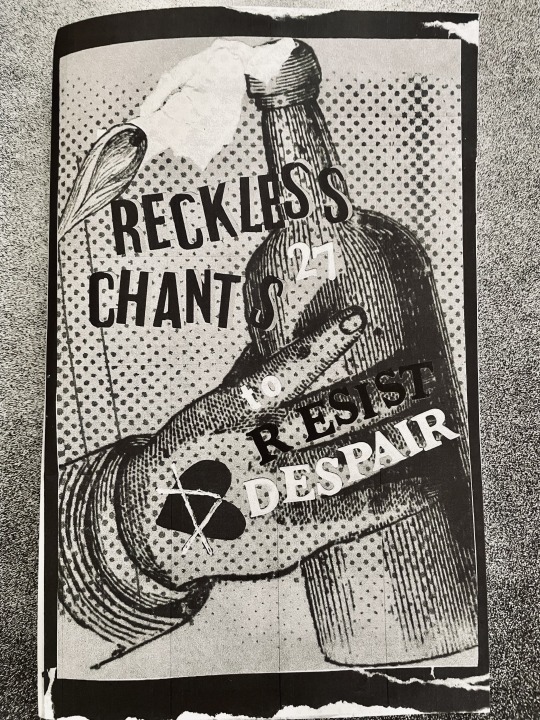
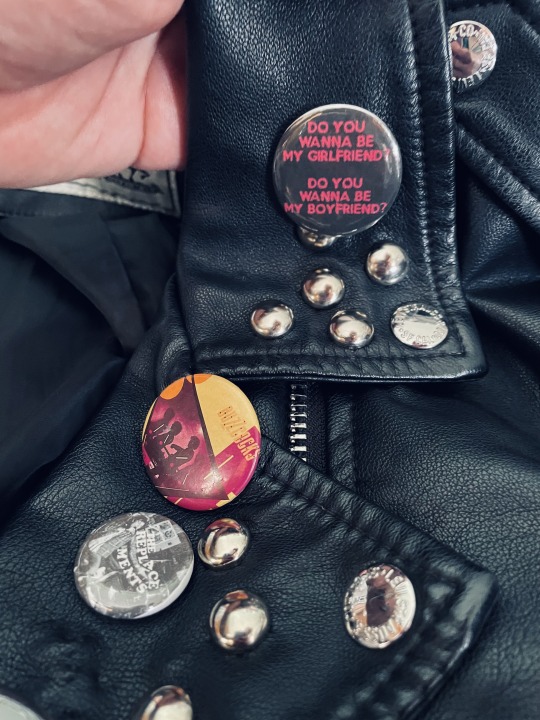
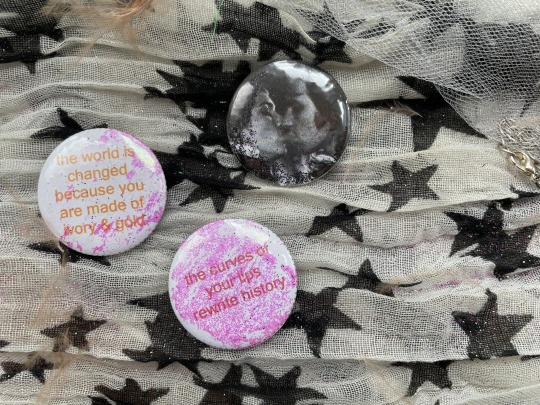
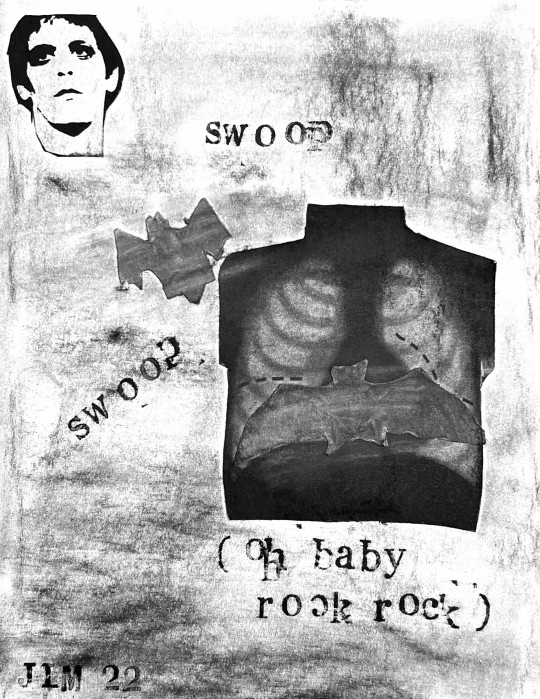
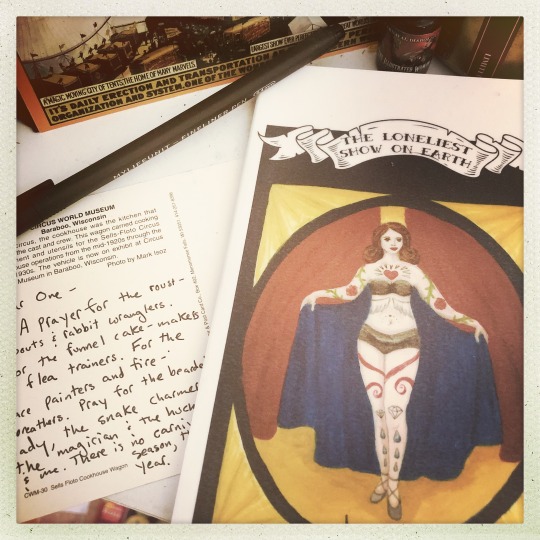
And that zine subscription? It’s still not too late to get in on it, even though the year is almost over. If you sign up now, you’ll receive all previous issues, along with this month’s when it’s finished, and the final two will be mailed out in January.
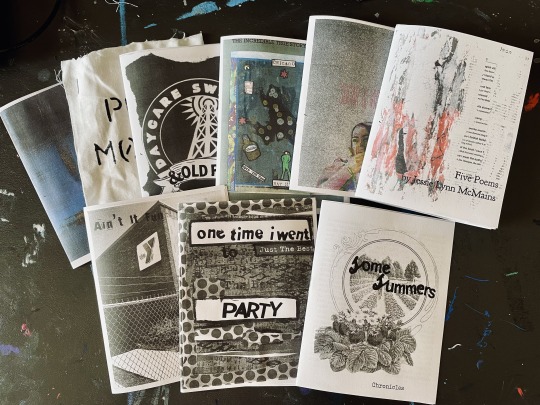
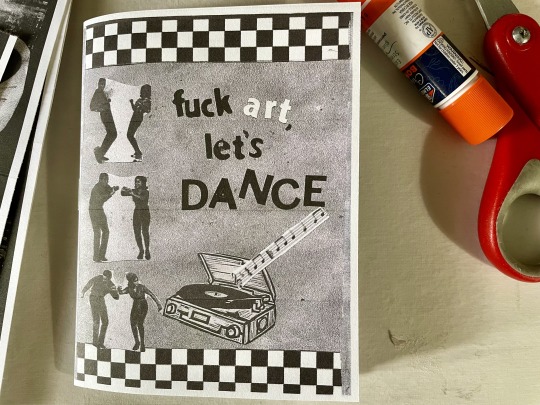
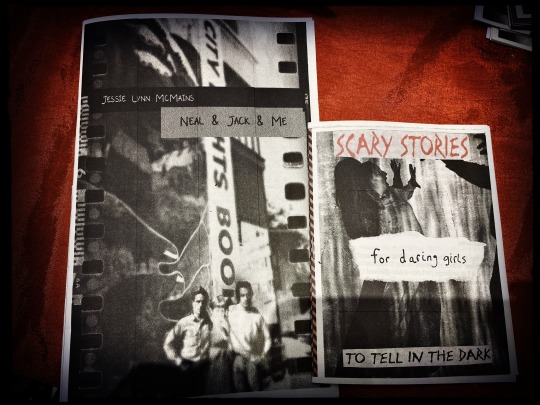
Or perhaps you’d like to buy or commission something I don’t officially have for sale. Maybe you’d like to buy one of my existing pieces of art? Or commission a custom pin, designed by me, based on the band/film/fandom/whatever of your choice? Or commission a custom postcard poem/art piece, on the subject of your choice? Or have me write you a custom mini-zine, on the subject of your choice? I can do all those things! DM me, and we’ll work something out!
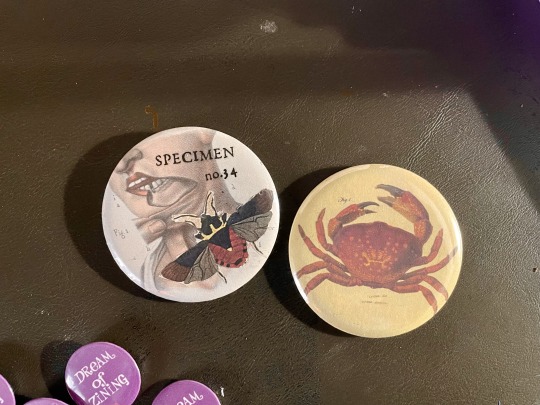
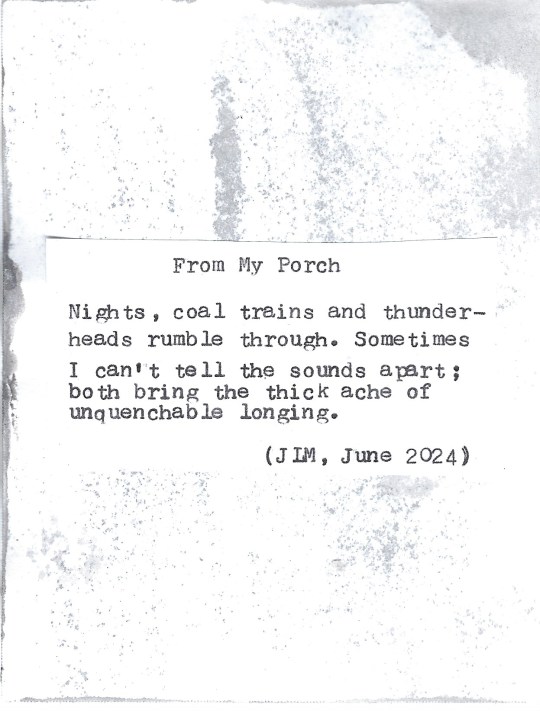
Oh, and I mentioned above that I was working on a new spoken word EP? Go check out my full-length spoken word album, Self-Portrait With Ghosts and Trains, which was released by Hello America Stereo Cassette in July 2021. You can find it at helloamerica.bandcamp.com. (I do get royalties from that release periodically, but it’s not as immediate as if you purchase something directly from me.)
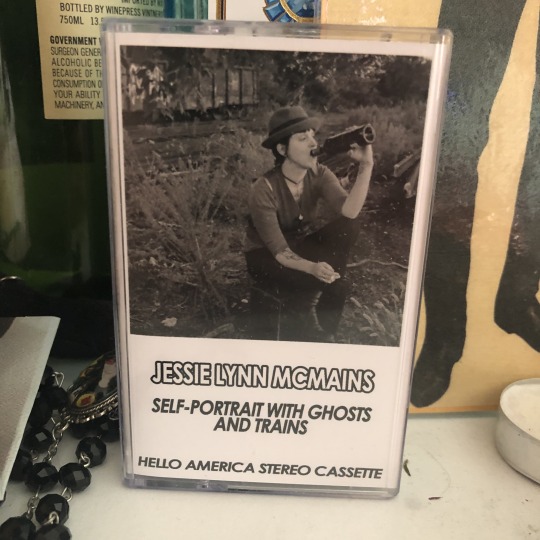
All that said, I know times are tough for most people right now, so please don’t feel obligated to purchase anything or otherwise send money my way. And, as always, even just a few dollars helps, as does reblogging/boosting this post. 🖤
#rust belt jessie#artists on tumblr#writers on tumblr#pinned post#please boost#i’ll reblog this later with direct links added#thanks in advance
55 notes
·
View notes
Text
Sorry again to my non ACOTAR mutuals, please feel free to ignore this.
@nikethestatue made some salient points in a recent post, and part of it really hit home, because I'd said something very similar to someone else this morning.
Like Nike, I've been part of a few fandoms before thanks to my similar tendency to hyperfixate on the media I like, but never as heavily as I've been involved in the ACOTAR fandom; that being said, quite a few of the authors I read and loved have put out multiple series set within the one universe, like Tamora Pierce and Robin Hobb, so maybe that's why the structure of ACOTAR having an original trilogy followed by a "spin off" series is normal* to me.
I don't know, I'm not sure. But the following aspect of this fandom has really shocked me (please skip now if you don't want to read my thoughts).
*I say this not to shame people who wanted more Feyre, I was the same after finishing ACOFAS and realising the next book was in Nesta's POV; I wasn't ready to move on from Feyre at the time, her journey took me on the wildest of rides, but the author and the story undeniably were (to a point, obviously, as everything major is still happening within her orbit). So just before ACOSF came out, I reread the series and then read a lot of Nesta centric fic to get into her character. It worked, btw, I was excited for ACOSF to be published and to learn more about Nesta.
I have never seen it normalised for fans of the secondary characters of the original series/universe as a whole - or the new main characters of each subsequent series - to be shamed for liking, preferring, or focusing on those characters. Some of the best fan made content I've seen (imo) set in the Tortall universe, for instance, focuses on the mother of the best friend of the third quartet's protagonist, or Raoul and [Redacted], or even fics that play fast and loose with canon.
It genuinely blows my mind that the ACOTAR fandom doesn't permit people to like or prefer characters other than Feyre or Rhys (who, btw, I still enjoy even if I don't seek out their content at this time!), or apparently we aren't paying enough respect to the original FMC/couple; especially as one of the secondary characters - Elain - is confirmed to be getting her own book at some point. It is just so wild to me that, apparently, some people reached adulthood without learning to share (fandom space, in this instance). I cannot imagine telling someone who is heavily into the The Immortals Quartet, or the Rain Wild Chronicles, that every post must qualify its existence with explicit gratitude to Alanna or Fitz for existing first.
So what if people are more excited about the next book in the series than meeting some imaginary bar of respect to Feysand on ACOTAR's 10th anniversary. Of course it's FINE to want to celebrate Feyre and Rhys, that will happen, and nobody is stopping you. We wish you joy! Just, please let the people who are interested in the next book be. We are not doing fandom wrong by showing excitement for the future of the series, especially after a four year wait.
31 notes
·
View notes
Note
It is actually so naive of eluciens and gwynriels to think the bracket thing is just a popularity competition. As if it isn't a marketing ploy. As if BB themselves didn't obviously have a hand in what moments were selected. As if they didn't design the pairs to be beneficial to their pr and marketing strategies. We're talking a whole ass industry running on more money than any of us could grasp. They don't mess around to please raging fans when they have a business to run and casual readers to capitalize off of (no shade, we get our books, they get their money). And yet I only ever see Elriels even talk about publishing as an actual industry.
The antis should seriously just think about it for a second.
AS IF Blooomsbury would let Lucien be absent from that bracket thing if he is to be the next MMC. AS IF they would set Gwyn up against an iconic Feyre moment and doom her to fail, if she was to be the next FMC. AS IF they would include not one but two Elriel moments (yes, I think both are Elriel moments because they chose to explicitly mention TT in the Elain moment), and put them up against each other to make sure it moves on to the next round. As if they'd do that if Elriel was an "ended ship", not relevant for the future plot. And right before we are likely to get an announcement. To do all this and then pivot to Elucien or Gwynriel, is incompetent marketing. It would never happen. The idea is laughable.
This isn't fan service. It's marketing, cheekily framed as a fan service event, ahead of an anniversary and an announcement of a huge release. But anyone can see that this is carefully orchestrated. It HAS to be, because publishing is an industry. Its orchestrated, and not in a nefarious way. Just in a perfectly normal standard for the industry type way.
Seriously, I've had quite a low opinion of BB given how they have handled Acotar the past four years. But this? Top teir marketing. Chaotic, to the point, no mercy for the small but screeching crowd of antis. Just ignoring them, dropping casual truth bombs about Elain. Whoever came up with this? Mad respect. Give them a raise.
And antis? Are antis really this naive? Or are they just holding on to a fantasy for dear life?
idfk atp. Its so obvious its a marketing stragety to bring engagement to their page and allow acotar to reenter the romantasy audience all before the big ACO10. BB had full control over what enters the brackets, some where fan submissions other selections where always going to make it. BB has a very a good idea of which moments are going to win each round and what type of narrative they’re creating. They do not gaf about catering to any fans. Right now their main priority is bracing the fandom for aco10. BB aren’t stupid. They know which topic is running hot in the fandom and what their readers are expecting.
Lucien didn’t make it into the brackets at all…it says a LOT about 1) how little the fandom cares about him aka he’s become irrelevant to the main fandom 2) BB haven’t prioritised him as important…hypothetically if an elucien book is next - by not including Lucien, they’ve just shown us he isnt that important RIGHT NOW. Yes Gwyn made it into the bracket but we all know how many people and which people voted for Gwyn moments- it would be to obvious that this is all calculated if Gwyn wasn’t included regardless…she was put up against a very iconic feyre moment. BB did it on purpose. Gwyn had no chance of making it and look - her scene is out. She’s gone…for a gwynriel book being next again this isnt a good look.
An Elain AND an elriel moment made it through. BB intentionally set them up against each other…why? Because 100% one scene will make it through. They even have a chance of beating the next few scenes. For an elriel book being next - this is very interesting and telling. Its bringing focus to Elain and elriel. AND both moments had TT which we know for sure will play a role in acotar 5 due to HOFAS.
it IS marketing. Its reminding old readers of acotar, convincing new readers of acotar and making the fandom active - with many people constantly visiting BB’s page. They’ve been very active and its not a coincidence that the last few months many big outlets are talking about acotar - all of this is building up towards aco10. Their big event. And you’re right - it is all orchestrated. Sarah is aware to an extent of whats happening and what her publishers are doing. The book is probably ready to be announced.
BB has been ruthless towards antis. They haven’t interacted or given in to the antis that where whining about elain killing hybern not being canon - ruining the event for everyone else - instead just ignored them which goes to show how irrelevant these people are. People aren’t going to believe a random account with a few thousand brought followers over the actual PUBLISHERS of the series whose reach is in the Ks. Its a slap in the face for antis, putting them back down into their positions. Reminding them, they’re nothing compared to the publishers of the series. The ones that have the final say and know what’s happening.
You know what I think? I think some antis are beginning to realise they’re wrong. They can’t jusyify everything - and this is making them insecure which they take out by being bitter towards elriel. Some antis have convinced themselves they’re popular names in this fandom - enough to believe majority would agree w them arguing w the literal publishers over a canon scene in the books they published when in reality everyone else was cringing and laughing at the sheer disrespect and audacity. Antis are only going to get more insecure and bitter. But I do think some are naive about this whole thing and are looking towards others to help them feel secure in their crackships again.
43 notes
·
View notes
Text
Good Omens and NG's fans are so baffled and annoyed some people only now are learning about the credible accusations against Gaiman and start questioning their devotion to a piece of media partially created by a disgusting human. How dare those people attack OG fandom when OG fandom had already processed it? And moved on? After all, the accusations came out the spring last year (it was summer, actually).
(Medium Is The Message. I wish more people read Marshall McLuhan).
Are you really that surprised an article from a serious publication is making more waves than a fairly unknown podcast? Like, for real? Because I fail to see anything suspicious in the fact that a lot of people are learning about NG's horrific actions just now, when a reputable magazine ran the investigation piece on him. Of course more people read New York Magazine and Vulture than are aware of Tortoise Media (no disrespect to the latter, just facts). Of course more journalists specifically take stuff published in New York Magazine more seriously.
There is no conspiracy behind the fact this story getting traction now. And yes, a lot of people are learning about it for the first time.
That is why GO's fans who are making it about them, about their god-given right to hyperfixate on a piece of media don't look great. Right now is not the time to profess your deep love to a silly little show or to mediore books.
Let people have conversation about power and fan culture and parasocial relationships and how all those things made the abuse possible. It is not about you.
#fuck neil gaiman#neil gaiman accusations#good omens#fan culture#parasocial relationships#neil gaiman
39 notes
·
View notes
Text
Weird to see the old Good Omens fandom could absolutely Goncharov the new part of the fandom (those that came in with the show) about the book, because curiously a lot of new fans don't seem to have read it.
EDIT: Alright, to clarify: This is not meant mean-spirited, however I am a little curious:
Everyone new to the fandom who hasn't read the book / who has little/no idea of what is happening in it, which ones of these are a false statement about what happens in the book:
The 14th century was the most stressful 100 years Crowley ever experienced.
Crowley got his commendation for the Spanish Inquisition because he's been on a pubcrawl in Spain at the time.
Aziraphale's shop is right next to a porn shop
Hastur and Ligur attempted to build a car to get to Crowley.
Crowley can just manifest sunglasses at will.
Aziraphale is (accidentally) responsible for the Library of Alexandria burning.
Newt got a magazine staff arrested for espionage/treason (possibly)
Crowley has an entire collection of actual soul music.
Crowley's responsible for the cholera epidemic in the 1830s.
Aziraphale's initial instinct was to tell Crowley about finding Adam's address. He decided against it.
Anathema technically owes Aziraphale money cause Agnes never paid back money she borrowed from him to pay a publishing fee for her prophecies
Crowley's responsible for Manchester.
Adam has an older sister, Pepper has a younger one who is delighted to be put through a witch trial.
Now, which of these are false?

578 notes
·
View notes
Text
Book Rec: Coming Out Under Fire, by Allan Bérubé
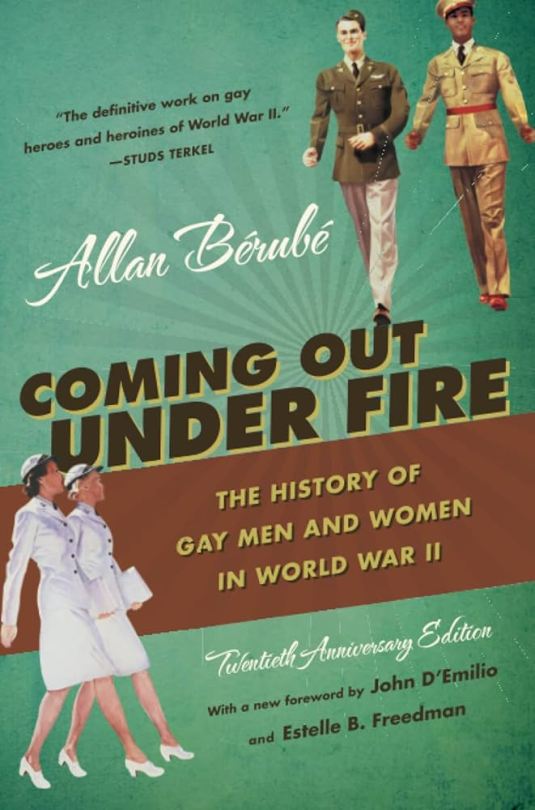
Occasionally I see some discourse on Tumblr from folks in the HBO War fandom or different historical/history adjacent fandoms about how there weren’t that many members of the queer community involved in WWII, and I’d really like to point them and everyone else with an interest in queer history to this wonderful book. Originally published in 1990, Coming Out Under Fire gets into all the different ways queer folks DID participate in the war. It’s from an American perspective, so if you’re looking for other Allied experiences, unfortunately there won’t be much here for you, but it’s exceptionally well researched, and crucially a lot of the content comes from interviews with surviving servicemembers. There’s also a documentary based on the book, which came out a few years later and includes video interviews with some of the folks included in the text.
One of Bérubé’s main points in his introduction – and for writing the book in the first place – is the American government, history textbooks, Hollywood, etc. is able to paint the WWII-era military as an almost entirely straight military force because many queer people who participated in the war effort were silenced during their lifetimes, and were unable or unwilling to reveal their true identities. Some of this was from societal pressure – the post war period saw a huge surge in homophobic rhetoric and persecution in the name of fighting Communism, not to mention the ever present heteronormative pressure to get married and have kids – but also because so many queer veterans died during the AIDS epidemic. Bérubé was inspired to preserve the voices of those who were still with us and shed a light on some of the folks we lost. (Note that this was also an intensely personal issue for Bérubé, who lost friends and his partner to AIDS and thus saw first hand how devastating this was to the community in terms of robbing us of our loved ones, friends, elders, and history itself.)
In the book, Bérubé makes the point over and over again that queer people were involved at basically every level in the American military during the war. There’s stories about guys lying when asked “Do you like girls?” during enlistment, lesbians in the Women’s Army Corps being brought to trial for fraternizing, drag shows in POW camps and in reserve, front line combat veterans discussing losing romantic partners to enemy fire or coming out to foxhole buddies, who were supportive allies rather than hateful. One of my favorite stories that’s always stuck out to me is a guy who came home and decided to come out to his elderly mother, who was fully accepting and supportive of her son’s sexuality. I see so many people speaking in absolutes that there’s NO WAY you could come out to your family and be accepted in the past, and while that was certainly true for so many people, it’s also not an absolute truth.
Please note I am NOT giving blanket permission to make assumptions about real-life people’s sexualities or identities, nor am I saying Band of Brothers fics where half the company is dating each other are historically accurate, but it’s really sad to see folks on here (unknowingly, hopefully) perpetuating the myth that there really weren’t that many queer folks in the military during WWII. We were there, we just couldn’t be out the way we might have liked to be. After the war, the Red Scare, societal pressure, and a literal epidemic silenced countless members of the community about their time in the service. There’s no way to know how many people who fought on Guadalcanal or worked at stateside bases or sorted mail in France were queer, but it’s a lot more than you were led to believe.
As a member of the community and a historian (brief resume: MA in Public History, BA in American History, have published stuff and created exhibits for dozens of museums), I just want to remind folks that we have always been here, and our lives weren’t always miserable and tragic when we came out to people or decided to live as authentically as we could get away with. It’s not completely historically inaccurate to write fic or original fiction where your queer characters can come out to their families and not be shunned, or live with their partners and not be immediately murdered. Being queer wasn’t invented at Stonewall.
299 notes
·
View notes
Text
A Big Gay Market: Sunday, April 27th in Albany!
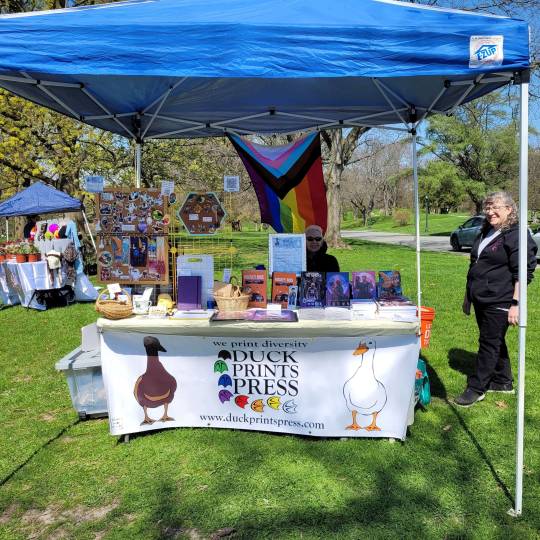
This coming Sunday, April 27th 2025, Duck Prints Press will be joining over 100 other awesome vendors, a handful of food trucks, a bunch of community organizations, and some wellness groups at A Big Gay Market in Washington Park, Albany, New York. The market will be open from 11 a.m. to 4 p.m. along the Knox St. Mall, and the current forecast suggests we’re in for a lovely day. So if you’re in the area, come on down, take in the tulips, and come hang out at the queerest market in town. Learn more, and I hope to see you there!
Also, in March, I did an interview with Cyren, who runs the market! As far as I know, Cyren’s report on the interview hasn’t posted yet, but I thought it’d be fun to post my pre-interview notes. I ended up saying way more during the actual interview, but this covered the basics…
Name: my actual name is Claire, my pen name is Nina Waters, and my most common online name is unforth. Pronouns: any, but I prefer strangers use they/them for me Age: 42 Location: Schenectady, NY Business Name: Duck Prints Press Social Media Handles: most places, duckprintspress, though on Mastodon I’m dppunforth, and my personal account on Tumblr is unforth.
1: When Did You First Start Your Business? What’s The Origin Story?
Okay, so in the early twenty-teens, my friend Burdock was considering going into publishing, and so they took on editing a couple anthologies to which they invited me to contribute as a writer. As they considered where to go in publishing from there, we started talking about maybe doing something together, the two of us, and during the summer of 2015, I started doing a lot of research and formulating a plan to do an indie micro press with them.
In college (circa 2001), Burdock was my roommate, and they and I engaged in a prank war. The original idea was for one of us to defeat the other using library books, music from the J-rock band Gackt, and ducks. However, when the time came to actually defeat each other, ducks were by far the easiest of the three to find, so we started attacking each other with ducks – for example, a duck tied to the pull-string light in my room, a bucket of ducks propped over the door of theirs, that kind of thing.
So in 2016, when I self-published my first book, I wanted to put an imprint on the spine, and was still thinking Burdock and I would do this together, so of course I came up with an press imprint name that incorporated ducks!
Time passed, and things changed, and when all was said and done, Burdock didn’t end up opening the press with me (though they are involved as a writer!), but Duck Prints Press stuck. I started more formally planning the business in 2019, and with support from my family, getting it formally started based on the previous years’ planning and research became my covid quarantine project; I’ve been running Duck Prints Press as my full-time job since December, 2020, and we’ve been an incorporated LLC since January, 2021.
2: How Does Your Business Intertwine With Your Identity?
While I wouldn’t say that my business ties to my personal identity (I am aroace and agender), it absolutely ties into my overarching identity as a queer person. The founding vision of the press is to publish original work by fancreators, especially fanartists and fanauthor. I was and am a fanauthor, and I always dreamed of publishing my original work, but there were a lot of impediments in the way: having a family, having a mental illness, the types of queer genre-crossing stories I wanted to tell, and more. I wanted to make a business where people like me, the friends I’d made in fandom, could publish their work no matter what their challenges were. The overwhelming majority of the people I’ve known in fandom are queer, and our focus is on telling queer stories. And that’s what Duck Prints Press does: while I don’t require demographic disclosures from our contributors, I only know of exactly one person who isn’t queer who works with the Press, and nearly all our stories and all our artwork incorporate queer elements. I want to bring these stories and artworks to a wider audience; I want us to tell our stories.
3: Where Was Your First A Big Gay Market? What Was That Like?
My first market was in October of 2023. Despite threatening weather, it wasn’t canceled at first; I went with my mother and a local author who has become a friend to set up in the absolutely pouring rain. The market ended up canceled within an hour of opening, but even with the terrible cold wet weather and the low turnout, I made almost $200 in the two hours or so I stuck out being there. I knew right then I’d be back: the lovely people, the cool crowds, the queer vibes, all of it was impeccable even on a yuck day. On a lovely day? It’s like being at a little mini-pride multiple times a year.
4: When Did You First Feel Like An Artist? Or, Alternatively, When Did You Feel Like Your Business Was Starting To Make Sense?
I started feeling like an artist – specifically, in my case, an author – when I started writing fanfiction. Before then, I wrote a lot but it always felt like something I did for me, something I wasn’t very good at and that no one outside my family would ever much care whether I did it or not. But when I started writing fanfic and sharing it online, I discovered that people actually really liked my words, and I was also able to produce a lot, consistently, at a high level, and I started to think: wow, I can really do this.
Then I had kids and got stupid busy and that good-vibes feeling kind of fell off a cliff, but deep down, I still know I can do it.
Of course, as a publisher, most of the work I put out isn’t my own, so to answer the second question as well: when I saw the interest in our first anthology, both from people who wanted to write for it and in people who wanted to purchase it. Our first anthology got over 100 applications, many of which were absolutely phenomenal, for only 20 story slots. That told me there was interest among fancreators for an outlet like my press for their original work. And then when we crowdfunded the anthology, we sold over 700 copies and raised over $25,000. That told me that there was interest among readers for the kinds of stories our creators would tell with their words and art.
The rest has just been the slow build from that initial success. It’s been a long process, but we’re finally breaking even consistently, and the future is bright.
5: How Has Your Work / Business Transitioned Over The Years?
…well, there’s more of it. All the time, there’s more of it. I also have a lot more help now than I used to; we started with a management team of five people, and now there are like twenty who help me make decisions, edit, publish, and more. I wouldn’t say there’s been a firm transition, like, we haven’t gone from one thing to another, but instead it’s been a slow build, like adding new blocks atop the existing foundation. Sometimes, those blocks aren’t stable and they fall; other times, they prove to be far more load-bearing than I’d ever predicted. It’s just a process of expanding on the parts that work and leaving behind those that don’t.
6: What Are Some Of Your Other Passions?
Well, fandom obviously! The initial plans for this came into being while I was a big fan of the show Supernatural, but in late 2019 I watched a Chinese historical drama called The Untamed, which was based on a boy’s love book called Mo Dao Zu Shi/The Grandmaster of Demonic Cultivation by Mo Xiang Tong Xiu. Unsurprisingly, considering I run a book publisher, I also love to read, and ever since I watched The Untamed, I’ve tumbled deeper and deeper into reading Chinese BL novels – the genre is called danmei.
I also love fibercrafts, though I’m in a bit of a drought recently – just haven’t been in the mood. I sew, embroider, cross-stitch, quilt, knit, crochet, weave, and spin!
7: Any Closing Thoughts?
If you want to start your own business, you absolutely can. Just make sure you have a really solid plan, and make sure you pay attention to pricing your things in a way that’s fair to yourself. Passion doesn’t put food on the table, as I’ve learned the hard way. If I didn’t have a supportive family, I wouldn’t have been able to tough out waiting for my business to actually make money.
Also, queer spaces are more important now than ever. Let’s be excellent to each other, okay? We’re in this together.
23 notes
·
View notes